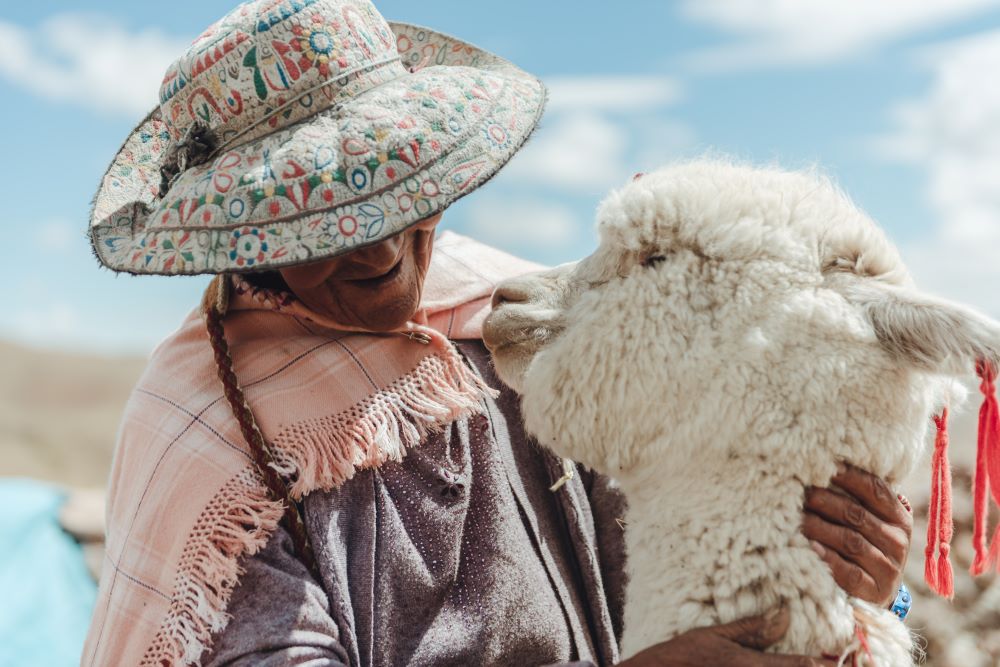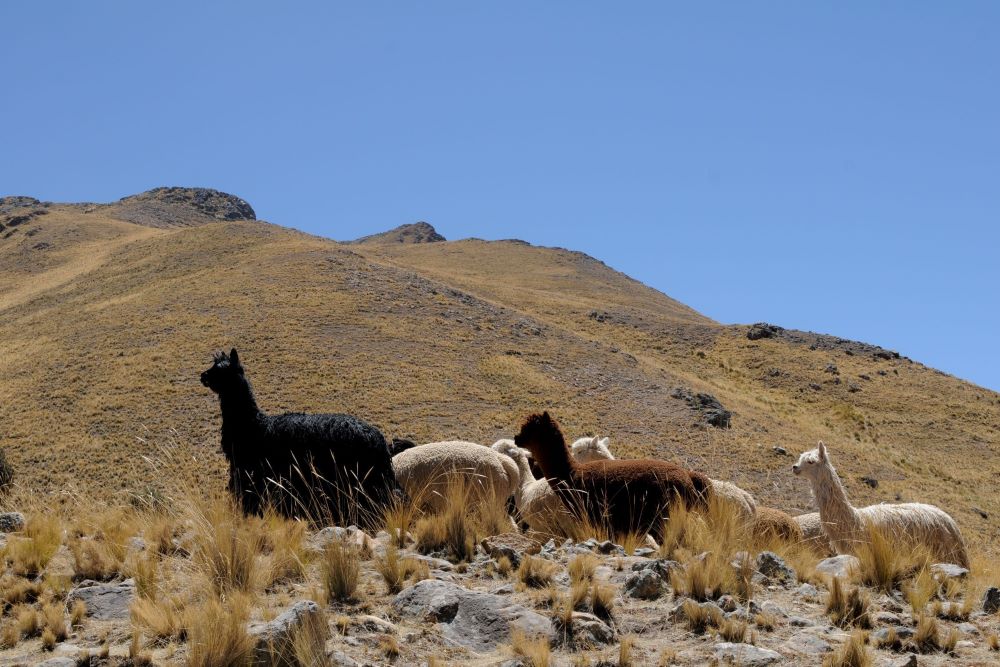
Why choose an Alpaca Royal sweater instead of a regular alpaca sweater?
Alpaca wool has many properties, due to which it has been considered a luxury material from the time of the Incas until today. Royal quality alpaca fiber is the finest alpaca fiber currently available on the knitting market. Ruukki Kehräämö's Alpaca Royal products are made from 100% Royal quality alpaca fiber.
It is estimated that there are more than 30 natural colors of alpaca fiber in the world, and it is the only natural fiber from which you can get completely black without dyeing. Ruukki Kehräämö's Alpaca Royal alpaca knits and wovens are undyed.

Figure 1. Color chart of alpaca fibers. (Photo by International Alpaca Association - IAA)
What does the quality of alpaca fiber mean in practice?
The primary quality factor is the fineness of the individual fiber, which is expressed in microns, i.e. thousandths of a millimeter.
To facilitate communication, different micron levels have been given official names used in the clothing industry, which make it easy to understand how fine the fiber is. The lower the micron number, the thinner the individual fibers and the softer the wool and the products made from it feel. For the sake of comparison, let's say that the diameter of a human hair is approx. 40-120 microns.
Coarse Alpaca < 30µm
Alpaca ≤ 28µm
Superfine Alpaca ≤ 24 µm
Baby Alpaca ≤ 22 µm
Royal ≤ 18 µm
Quality = Soft and shiny
Fine quality Alpaca wool is soft and non-stinging on the skin, but it should be noted that not all Alpaca wool is that way. Many of the properties of alpaca wool are due to the fineness of the individual fibers of alpaca wool. And the properties deteriorate the thicker the fiber is. That's why the Royal-quality alpaca sweater feels soft against the skin and doesn't itch, even if lower-quality Alpaca wool does itch.
The high-quality 100% Alpaca Royal sweater has a natural shine due to the fineness of the fiber, which makes the sweaters elegant and luxurious.
Quality = Insulating and body temperature regulating
Alpaca fiber has a hollow structure and is therefore significantly more insulating than sheep's wool. It does not absorb moisture and regulates body temperature in a researched manner. Alpaca does not contain lanolin, which makes it hypoallergenic and antibacterial.

Figure 2. Close-up of alpaca wool. (Photo by International Alpaca Association - IAA)
Quality = Water and dirt repellent
Alpaca fiber repels water and dirt, keeping the animal dry and clean. Dyeing and other chemical treatments break the surface of the fiber, which weakens these properties. The properties of untreated fiber, on the other hand, are transferred to the final product.
Quality = Light and durable
Alpaca fiber is the third most durable natural fiber in the world in terms of tensile strength, only silk and spider web are stronger than alpaca fiber. This makes Alpaca Royal products durable, although light. Pimpling-free yarn and a knit that keeps its posture well are created only from high-quality fiber, and therefore Alpaca Royal - knits withstand wear better than alpaca knits made from lower-quality fiber.
Quality = Responsible
Ruukki Kehräämö's Alpaca Royal collection uses only ethically produced, RAS-marked (Responsible Alpaca Standard) alpaca wool. Breeders belonging to Peruvian indigenous peoples tend their small herds with respect for nature. For each batch of yarn that arrives at Ruukki Kehräämö, the finest fibers are collected separately from local small farms. Breeders get better compensation from Alpaca Royal fiber than from coarser quality wool, for example Baby Alpaca.
An undyed alpaca knit consumes only a little water during its life cycle, compared to normal clothing production or a dyed alpaca knit. The undyed 100% Alpaca Royal sweater is completely biodegradable.
We use fiber with a lower quality classification, e.g. as filling wool, for the manufacture of interior products and felted products. Our waste rate is 0%.





































